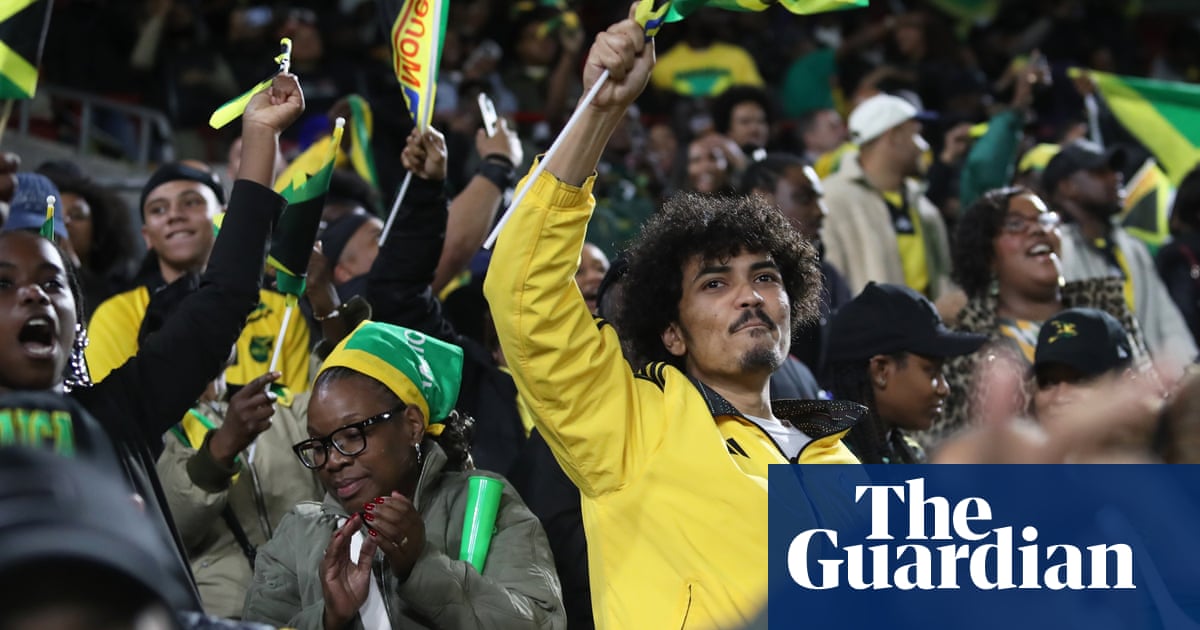Where are you from? This simple question can be a minefield for anyone with a hyphenated identity. Depending on who is asking, I could be British, Nigerian or Jamaican. In Britain I’m black. In Nigeria I’m aninnit innit boy.In Jamaica I’m foreign. I’m from here but I’m not from here. Each layer of my cultural backdrop explains so much and complicates even more.
The Unity Cup validates the experiences of many people like me who are a part of London’s diaspora communities. The friendly football tournament brings together Ghana, Nigeria,Jamaicaand Trinidad & Tobago across five days to compete for nothing more than the love of game, the celebration of culture and the chance to earn unassailable bragging rights.
It’s a sequel to the 2004 Unity Cup that hosted Nigeria, Ghana and the Republic of Ireland at the Valley in Charlton. Nigeria won the round-robin competition 21 years ago and they will face Jamaica in the final of this year’s single-elimination tournament at Brentford’s Gtech Community Stadium after Jamaica beat Trinidad & Tobago 3-2 on Tuesday and Nigeria beat Ghana 2-1 on Wednesday at the same venue.
Former Wimbledon, Watford and Brentford striker Marcus Gayle was at the 2004 edition of the Unity Cup as a commentator after ending his international career with Jamaica two years after the Reggae Boyz reached the 1998 World Cup.
For Gayle, now an ambassador for Brentford, the competition is as much about bringing people together as it is about the results on the pitch. “The last time this happened was 21 years ago, so there are many fans that were not even born [then] who can witness this event and I think that’s a healthy thing” he says. “They can see what their nations can produce [while staying] in their local area.”
Gayle was born in Hammersmith to a Barbadian mother and Jamaican father. Despite representing England at youth level, he ultimately decided to play for Jamaica at senior level.It was a decision that was not taken lightly.“I had to go through some politics at the time,” Gayle remarks.
The 54-year-old’s response alludes to debates about English-born players with heritage elsewhere playing for England or for their country of origin. “It’s about what’s prestigious” says Gayle, referring to England’s chances at a major tournament compared to Jamaica’s, and the calibre of players in the respective national setups. “There also should be a sense of pride in who you are, your identity and what makes you.”
Once Gayle joined Jamaica’s national setup with fellow English-born players such as Fitzroy Simpson, Deon Burton and Paul Hall, he immediately felt at home. “It was like my DNA connected to the soil,” he says. We felt integrated. There were stories that we all had [in common], but it was just 4,000 miles apart.”
He also found himself learning from the homegrown players. Used to the strict nutritional regimen of the Premier League, Gayle ate small portions of pre-match staples such as porridge and a banana while his teammates piled their plates before games. He would ask them: “How are you going to eat that and then still run around?” Little did he know that the hot conditions would force him to match his teammates with plates full of hard food. “I was underfueling myself because of how I was brought up in football,” Gayle says. “I was burning calories galore so I had to adapt. I had to entwine with the culture, which is beautiful.”
For Gayle, the Unity Cup is an opportunity for others to connect with their culture in a similar way. “I hope it will encourage the younger generations to look at representing their countries with pride and dignity,” he says.
This sense of pride and dignity has trickled down to the fans who enjoyed a jovial atmosphere at the semi-finals. Jamaica versus Trinidad & Tobago felt more like a carnival than a football game and,if social media is anything to go by, the “Jollof derby” was just as joyous.
Jamaica versus Nigeria is a fitting final as both countries given how much both nations have shaped Britain and its culture, albeit the match represents something of a personal dilemma. Regardless of the score on Saturday, the Unity Cup is fostering a sense of pride among the respective countries and their communities at home and abroad.
